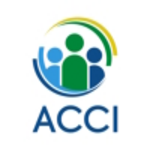
2024 Annual Conference
May 21–23, 2024
Hyatt Regency Milwaukee, Milwaukee, WI, USA
IMPORTANT NOTICE: The date, time, and room assignment of YOUR presentation is SUBJECT TO CHANGE.
Proposal authors can use this tool to see where they have been placed in the program agenda for an Oral or Poster Session.
Scroll down to search by the Submitter or Author Name, by Date/Time, or by Keywords.
Confirm your place in the schedule by following the instructionss that were emailed to you. Each presentation must have a separate paid registration. Contact the ACCI office immedicately by email at admin@consumerinterests.org to report any conflict, all corrections to the details of the presentation (including author names and the order they are listed as this is how it will be in the final program), or if you have any questions. Please be sure to reference the session title(s), date(s), and time(s) when you contact us.
C2b Improving Consumer Responsiveness to Public Health Behaviors
Short Description
Public health typically views the community as the entity being served rather than an active partner in addressing threats. Yet, marketing theory suggests that membership in a brand community predisposes members to act in ways that support the brand. To date, no study has explored whether there is evidence of a public-health community with a mindset supportive of public-health objectives. Using data from 24,400 US adults, we examine evidence of a public-health mindset in the behavioral response to COVID-19. We find that consciousness of one public health threat was associated with more rapid and persistent behavioral response to another. People with an increased consciousness of food safety were more likely to respond to calls for behavioral responses to COVID-19 directly (beta: March=.150; April=.130;May=.213) and indirectly through COVID-19 concern (beta: March=.141;April=.148;May=.166). Similar results were found for environmental responsibility. Our results suggest an opportunity to build a public health mindset by expanding messaging beyond individual threats to include a focus on a shared understanding, practices, and sense of responsibility. Emphasizing this mindset, public health campaigns can foster and support a responsive community that is ready for action when new threats emerge.
Type of presentation
Accepted Oral Presentation